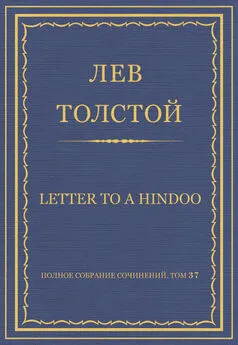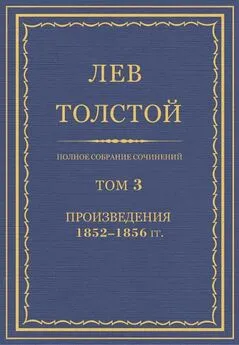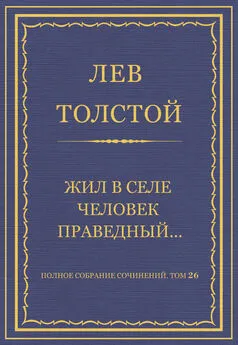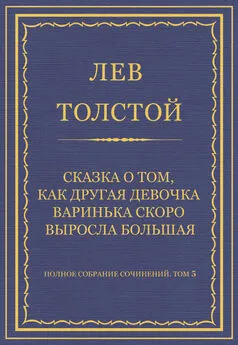Лев Толстой - Полное собрание сочинений. Том 37. Произведения 1906–1910 гг. Letter to a Hindoo
- Название:Полное собрание сочинений. Том 37. Произведения 1906–1910 гг. Letter to a Hindoo
- Автор:
- Жанр:
- Издательство:АгентPDF8f070fbc-092c-11e0-8c7e-ec5afce481d9
- Год:неизвестен
- ISBN:нет данных
- Рейтинг:
- Избранное:Добавить в избранное
-
Отзывы:
-
Ваша оценка:
Лев Толстой - Полное собрание сочинений. Том 37. Произведения 1906–1910 гг. Letter to a Hindoo краткое содержание
Полное собрание сочинений. Том 37. Произведения 1906–1910 гг. Letter to a Hindoo - читать онлайн бесплатно полную версию (весь текст целиком)
Интервал:
Закладка:
You say that the English have enslaved and keep the Hindoos in subjection because the latter have not resisted sufficiently, and do not resist the violence by force.
But it is just the contrary. If the English have enslaved the Hindoos, it is just because the Hindoos recognised and do recognise coercion as the main and fundamental principle of their social order: in the name of this principle they submitted to their little Radjas, in their name they struggled with each other, fought with Europeans, with the English, and at present are preparing to a struggle with them again.
A commercial company enslaved a nation comprising 200 millions. Tell this to a man free from superstition and he will fail to grasp what these words mean. What does it mean that thirty thousand people not athletes, but rather weak and illooking have enslaved 200 millions of vigorous, clever, strong, freedom-loving people? Do not the figures make it clear that not the English, but the Hindoos, have enslaved themselves?
For the Hindoos to complain that the English have enslaved them, is equal to people who are addicted to drikn, complaining that vendors of wine, who have settled in their midst, have enslaved them. You tell them that they can abstain from drinking, but they answer that they are so accustomed to it that they cannot abstain, that they find it necessary to keep up their energy by wine. Is not that the case with all the people, with millions of people who submit to thousands and hundreds of individuals, either of their own nation or of foreign nations?
If the Hindoos have been enslaved by violence it is because they themselves have lived by violence, live by violence, and do not recognise the eternal law of love, inherent in humanity.
«Pitiful and ignorant is the man who seeks what he has already got, but is unaware that he has it. Yes, pitiful and ignorant is the man who does not know the bliss of that love which surrounds him, which I gave him» (Krishna).
If man lives only in accord with the law of love which includes non resistance, which has been already revealed to him and is natural to his heart, and hence does not participate in any form of violence, not only hundreds will not enslave millions but even millions will be unable to enslave one individual. Do not resist evil, but also yourselves participate not in evil, in the violent deeds of the administration, of the law courts, the collection of taxes, and what is most important of the soldiers, and no one in the world will enslave you.
Love is the only means of saving people from all disasters which he may undergo. In your case the only means of liberating your people from slavery lies in love. Love as the religious foundation of human life was proclaimed with striking force and lucidity in the midst of your people in remote antiquity. Love, without non-resistance is a contradiction in itself. And there, in the 20th century you, a member of one of the most religious of peoples, with a light heart and with confidence in your scientific enlightenment and hence in your undoubted righteousness – you deny this law, repeating – pardon me – that colossal error which they, the defenders of violence, the enemies of the truth, at first the servants of theology, then of science, your European teachers, have instilled into you.
VI
O, ye who sit in bondage, and continually seek and pant for freedom, seek only love. Love is peace in itself and peace which gives complete satisfaction. I am the key that opens to the rarely discovered land where contentment alone is found.
Krishna P. 167.To the humanity of our times, Eastern or Western, the same thing happens which takes place in regard to every individual when he is passing from one age to the other (a child becoming a youth, a youth a man) and loses that which has been hitherto his guide in life, and not having elucidated a new one appropriate to his age, lives without any guidance and invents various anxieties, cares, amusements, provocations, untoxications, to distract his attention from the misery and selfishness of his own life. Such a condition may last a long time.
But as during the transition of an individual from one age to another, the time must inevitably come when life can no longer continue in the old ruts as before, in senseless anxiety and irritation, and the man must understand that the previous guidance for life is no longer applicable to him, – it does not follow that he must necessarily live without any rational guidance whatever, but that he should formulate for himself a theory of life corresponding to his age, and having elucidated it, he should in his new age be guided by it.
Similar crises must of necessity occur in the ever changing life of humanity. And I am of opinion that the time has arrived for such a transition of humanity from one age to another, and not in the sense that it has arrived now, vis. 1908, but that the inherent contradiction of human life; the consciousness of the beneficence of the law of love, and the system of life built upon the law of violence opposed to love in our time has reached that degree of intensity under which it can no longer go on, and must be met by a solution, and evidently not with a solution which favours the outlived law of violence, but in favour of the truth that the law of human life is the law of love, cherished by all humanity from the most remote antiquity.
The recognition of this truth in its full significance is possible for men, only when they free themselves completely from all religious, as well as scientific superstitions by means of which it has been for centuries hidden from mankind.
In order to save a sinking ship it is necessary to throw overboard the ballast, which though it might have been indispensable at one time, would now cause destruction. It is exactly the same with religious and scientific superstitions which hide this salutary truth from men. In order that people could embrace the truth, not in such a vague way as it presented itself to them during their childhood, nor in such a onesided, unstable way as it was interpreted to them by religious and scientific teachers, but in such a manner that it should become the highest law of human life; to effect this, the complete liberation of this truth from all, all those superstitions pseudo religious as well as pseudo scientific which now obscure it, is necessary, not a partial, timid liberation, such a one as in the religious sphere was effected by Guru-Nanaka, the founder of the religion of the Sakas, and in Christianity by Luther, or similar reformers in other religions, but a complete deliverance of the religious truth from all those ancient religious, as well as from the modern scientific superstitions.
If people only freed themselves from beliefs in all kinds of Ormuzds, Brahmas, Sabbaoths, their incarnation in Krishnas and Christs, from beliefs in a paradise and hell, in angels and demons, from reincarnations, resurrections, from the idea of the interference of God in the life of the universe; free themselves chiefly from the recognition of the infallibility of the various Vedas, Bibles, Gospels, Triptakas, Korans, etc.; if people only freed themselves also from blindly believing in all sorts of scientific doctrines about infinitesimally small atoms, molecules, about all kinds of infinitely great and infinitely remote worlds, about their movements and their origin, about forces; from the implicit faith in all manner of theoretical scientific laws to which man is supposed to be subjected – the historic and economic laws, the laws of straggle and survival etc., – if people only freed themselves from this terrible accumulation of the idle exercises of our lower capacities of mind and memory which are called the Sciences, from all the innumerable divisions of all sorts of histories, anthropologies, homiletics, bacteriologies, jurisprudences, cosmographies, strategies, their name is legion; if people only relieve themselves of this ruinous intoxicating ballast, – that simple, explicit law of love accessible to all, which is so natural to mankind, solving all questions and perplexities, will of its own accord become clear and obligatory.
VII
Children, look at the flowers at your feet; do not trample upon them. Look at the love in your midst and do not repudiate it.
Krishna P. 178.There is a higher reason which transcends all human minds. It is far and near. It permeates all the worlds and at the same time is infinitely higher than they.
A man who sees that all things are contained in the higher spirit, cannot treat any being with contempt.
For him to whom all spiritual beings are equal to the highest, there can be no room for deception or grief.
Those who are ignorant and are devoted to the religious rites only , are in a deep gloom, but those who are given up to fruitless meditations are in a still greater darkness.
Upanishads, from Vedas.Yes, in our time, men – to escape from self inflicted calamities which have reached the highest degree of intensity: whether it be a Hindoo seeking liberation from the subjugation of the English, or any other man in his struggle with those using violence – whether in the negro’s fights with the North American, or the Persian’s, Russian’s or the Turk’s fight with his Government, as well as any man who seeks the greatest amount of welfare for himself as well as for everybody – do not require new explanations and justifications of old religious superstitions, as Vivekanandas, Baba Bharatis and others have formulated in your country, and in the Christian world; an infinite number of such new interpreters and expounders of what no one stands in need; nor the innumerable sciences about matters which not only are unnecessary but mostly harmful (in the spiritual realm there is nothing indifferent, but what is not useful is always harmful). The Hindoo, as well as the Englishman, the Frenchman, the German, the Russian, do not require constitutions, revolutions, any conferences, congresses, any new ingenious devices for submarine navigation, aerial navigation, powerful explosives, or all kinds of conveniences for the enjoyment of the rich ruling classes; not new schools, universities with instruction in innumerable sciences, not the augmentation of papers and books, and gramophones and cinematographs, not those childish and mostly corrupt stupidities which are called arts; but one thing only is needful: the knowledge of that simple lucid truth – that the law of human life is the law of love, which gives the highest happiness to every individual, as well as to all mankind. If people only free themselves in their consciousness from those mountains of nonsense which hide the truth from them; and that indubitable eternal truth inherent to mankind which is one and the same in all the great religions of the world, will inevitably enter the soul of every man. And as soon as this is acknowledged by the great majority, stupidity which now conceals it will disappear and with it will by itself disappear all the evils from which humanity now suffers.
«Children, look upwards with your beclouded eyes, and a world full of joy and love will disclose itself to you, a rational world made by my wisdom, the only real world. Then you will know what love has done with you, what love has bestowed upon you, and what love demands from you» (Krishna).
Dec. 14th, 1908.
Yasnaya Poliana.
ПИСЬМО К ИНДУСУ
Всё, что существует, едино: люди только называют это единое разными именами.
Интервал:
Закладка:










